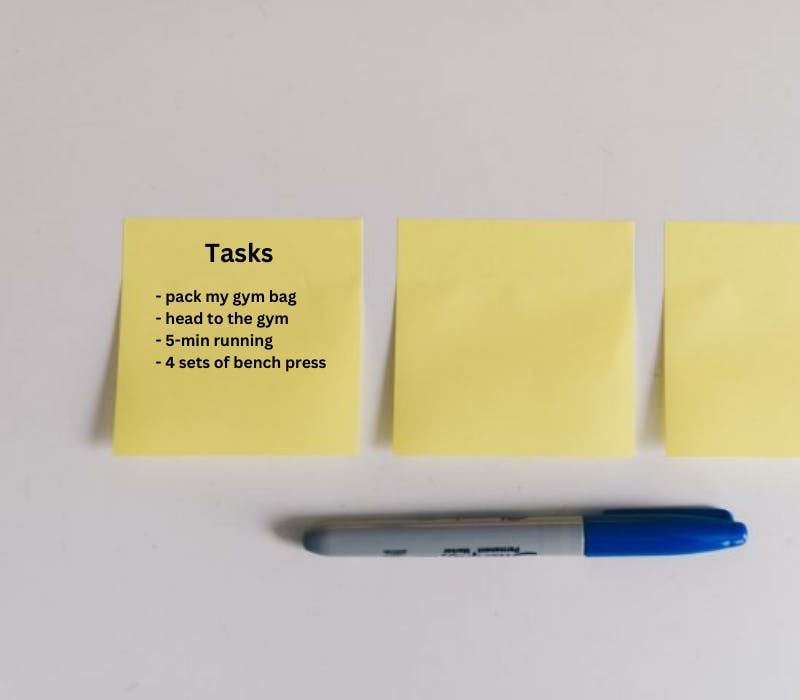
How Anxiety Fuels Procrastination: Breaking the Cycle
Jul 14, 2024
Introduction
Have you ever found yourself staring at a looming deadline, feeling a knot of anxiety in your stomach, and yet unable to start working on the task at hand? Instead, you might find yourself scrolling through social media, or engaging in any number of activities that are not your priority. If this sounds familiar, you're not alone.
Millions of people experience the tangled web of anxiety and procrastination daily, and understanding how these two challenges feed off each other can be the first step toward breaking free from their grip.
Anxiety and procrastination are two common issues that many people face, often feeding into each other in a vicious cycle. Understanding how anxiety fuels procrastination and learning how to break the cycle can be transformative for those looking to improve their productivity and mental well-being.

Understanding Anxiety and Procrastination
Anxiety is a natural response to stress, characterized by feelings of tension, worried thoughts, and physical changes like increased blood pressure. It becomes problematic when it is excessive and interferes with daily activities.
Procrastination is the act of delaying or postponing tasks. While everyone procrastinates at times, chronic procrastination can lead to stress, decreased productivity, and a sense of failure.
The Connection Between Anxiety and Procrastination
- Fear of Failure: Anxiety often stems from a fear of failure. When faced with a task, the thought of not succeeding can be overwhelming. This fear can lead to avoidance, manifesting as procrastination. The more significant the task, the greater the fear, and the stronger the urge to procrastinate.

- Overwhelm: Anxiety can make tasks appear achievable. The brain becomes overwhelmed with the magnitude of the task, leading to paralysis by analysis. Instead of taking the first step, the individual may find themselves stuck in a cycle of overthinking and inaction.
- Perfectionism: Many people with anxiety also struggle with perfectionism. They set unrealistically high standards for themselves and fear that anything less than perfect is a failure. This fear can cause them to delay starting or completing tasks, as they worry they won't meet their own expectations.
- Lack of Confidence: Anxiety can erode self-confidence. When individuals doubt their abilities, they are more likely to procrastinate because they fear they won't be able to complete the task successfully.
- Avoidance Coping: Procrastination is a form of avoidance coping. By putting off tasks, individuals temporarily reduce their anxiety. However, this relief is short-lived and often leads to increased anxiety as deadlines loom.
Breaking the Cycle: Strategies to Combat Anxiety-Driven Procrastination
- Identify the Root Cause: Understanding the specific anxiety driving your procrastination is the first step. Is it fear of failure, perfectionism, or something else? What are the unsolved problems running in your head that hold you back? Journaling can help you uncover these underlying issues.
- Set Realistic Goals: Break tasks into smaller, manageable steps. Setting realistic, achievable goals can reduce feelings of overwhelm and make tasks feel more manageable. Celebrate small victories to build confidence.

- Practice Self-Compassion: Be kind to yourself. Understand that everyone makes mistakes and that imperfection is a part of the human experience. Practicing self-compassion can reduce the fear of failure and help you approach tasks with a more positive mindset.
- Use a Timer: The Pomodoro Technique involves working for a set amount of time (e.g., 25 minutes) followed by a short break. This can make tasks seem less daunting and help you stay focused. It also provides regular intervals for relaxation, reducing overall anxiety.
- Develop a Routine: Establishing a daily routine can provide structure and reduce decision fatigue. When tasks become part of your regular schedule, they feel less overwhelming and easier to tackle.
- Mindfulness and Relaxation Techniques: Practices such as mindfulness meditation, deep breathing exercises, and progressive muscle relaxation can help manage anxiety. These techniques can calm your mind and make it easier to focus on the task at hand.
- Seek Support: Talking to a friend, family member, or therapist can provide valuable perspective and encouragement. Support from others can help you feel less isolated and more capable of tackling your tasks.
- Challenge Negative Thoughts: Cognitive-behavioral techniques can help you identify and challenge negative thought
- Visualize Success: Visualization can be a powerful tool in overcoming anxiety and procrastination. Spend a few minutes each day visualizing yourself successfully completing tasks. This can help build a positive mindset and reduce the fear associated with starting and finishing tasks.
- Limit Distractions: Create a work environment that minimizes distractions. This might mean turning off notifications on your phone, using website blockers during work periods, or finding a quiet space to work. Reducing external distractions can help you focus and reduce the temptation to procrastinate.
- Prioritize Self-Care: Ensuring that you take care of your physical health can have a significant impact on your mental health. Regular exercise, a balanced diet, sufficient sleep, and hydration are all critical components of managing anxiety. When your body feels good, your mind is more likely to follow suit.
- Use Positive Reinforcement: Reward yourself for completing tasks, no matter how small. Positive reinforcement can create a positive association with task completion, making it more likely that you'll approach future tasks with a proactive mindset.
- Reflect and Adjust: Regularly take time to reflect on your progress and adjust your strategies as needed. What worked well? What didn’t? Reflection allows you to learn from your experiences and continually improve your approach to managing anxiety and procrastination.
- Professional Help: If your anxiety and procrastination are significantly impacting your life, it might be beneficial to seek professional help. Therapists and counselors can offer personalized strategies and support to help you manage these challenges.
Practical Examples
To illustrate these strategies, let's consider a practical example. Imagine you have a significant project due in two weeks, and the thought of it is causing you considerable anxiety, leading you to procrastinate.
- Identify the Root Cause: You realize that your fear of producing a subpar project is the primary driver of your anxiety.
- Set Realistic Goals: Break the project into smaller tasks, such as researching, outlining, drafting, and revising. Set a timeline for each step.
- Practice Self-Compassion: Remind yourself that it's okay not to be perfect and that doing your best is enough.

- Use a Timer: Commit to working on the project for 25 minutes, followed by a 5-minute break. Repeat this cycle to maintain focus and reduce overwhelm.
- Develop a Routine: Schedule specific times each day dedicated to working on the project, making it a regular part of your daily routine.
- Mindfulness and Relaxation: Spend a few minutes before each work session practicing deep breathing or mindfulness meditation to calm your mind.
- Seek Support: Discuss your project with a trusted friend or mentor who can offer encouragement and feedback.
- Challenge Negative Thoughts: When you notice negative thoughts about your abilities, challenge them by recalling past successes and the effort you’ve put into the project.
- Visualize Success: Spend a few minutes visualizing yourself completing the project successfully and the positive outcome it will bring.
- Limit Distractions: Create a dedicated workspace free from distractions to help you focus.
- Prioritize Self-Care: Ensure you’re eating well, exercising, and getting enough sleep to keep your body and mind in optimal condition.
- Use Positive Reinforcement: Reward yourself with something enjoyable after completing each section of the project.
- Reflect and Adjust: At the end of each day, reflect on what strategies helped you make progress and which ones didn’t. This reflection allows you to refine your approach and find the methods that work best for you.
Conclusion
The relationship between anxiety and procrastination is complex, but understanding how they feed into each other is the first step toward breaking the cycle. By implementing practical strategies and building long-term resilience, you can manage your anxiety and reduce procrastination. Remember, it’s a journey, and progress may be gradual. Be patient with yourself, celebrate your successes, and seek support when needed. With persistence and self-compassion, you can overcome the anxiety-procrastination trap and achieve your goals.




